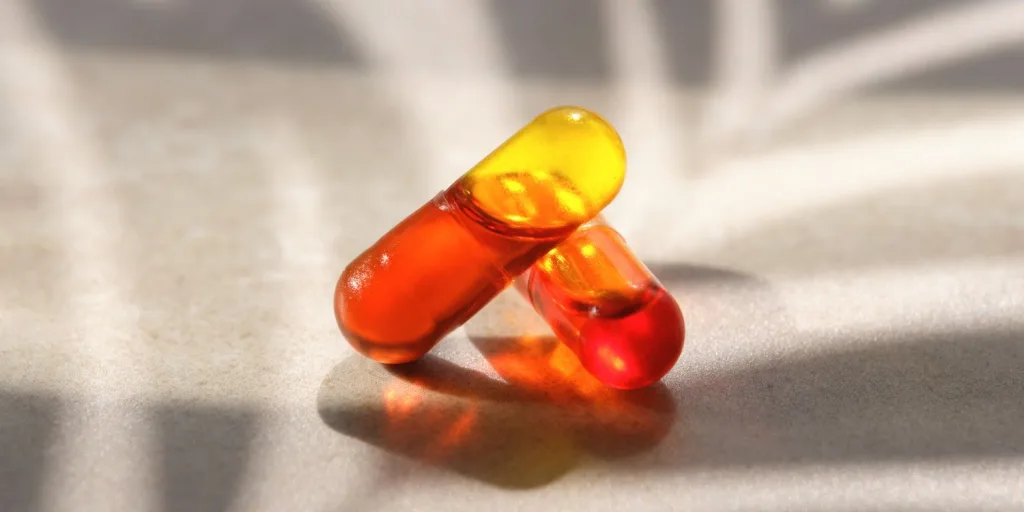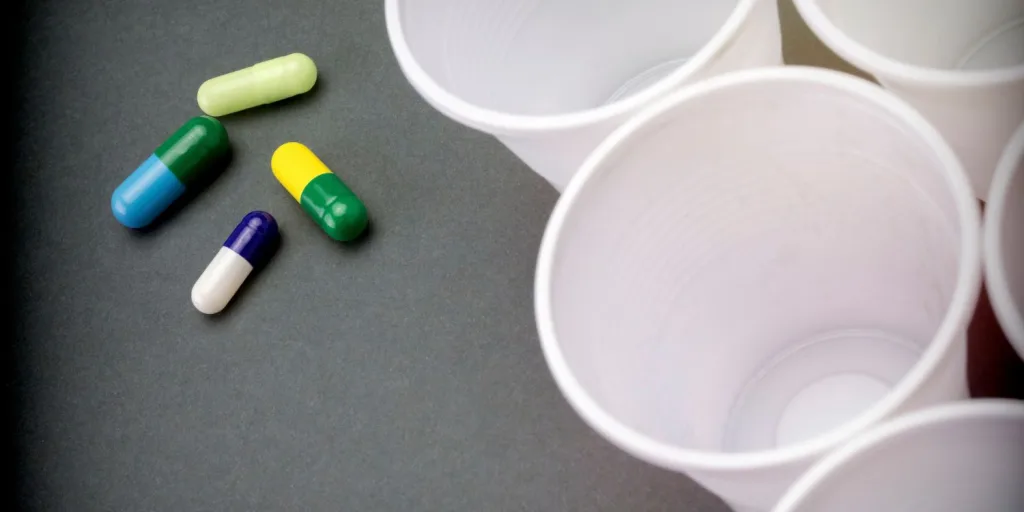
As 2024 unfolds, innovations in the form of specialized capsules support the significant trend toward personalized, effective, and consumer-friendly health products. As a bulk empty capsule supplier, Vivion strives to support our clients in their production by focusing on emerging opportunities and new technologies for solid dose manufacturing. In this article, we’re focusing on a few specific types of specialized capsules that are increasingly being used in the solid dose sector: NOP organic pullulan capsules, HPMC liquid capsules, pearl color capsules, uncommon capsule sizes such as #00el and #000, and enteric gelatin capsules. Are you looking to distinguish your product in the crowded health and wellness market? Now is a good time for manufacturers to use the potential of these specialized dosage forms.
The National Organic Program (NOP) is a governing body in the United States that oversees organically produced products in the nation. The NOP provides a certification for products that follow the organization’s stringent organic standards. As time goes on, organic labels and certifications are becoming increasingly important as consumers are looking for more clean and natural supplement options, which is no surprise due to the overall trend towards health-conscious, environmentally friendly lifestyle choices. Encapsulated products are no exception– so when manufacturers have organic material they want to encapsulate, what is their option for empty capsules that are natural and non-synthetic?
Pullulan is a natural polysaccharide that is produced by the fungus Auerobasidium pullulans. Not only an excellent alternative to animal-derived gelatin capsules for those with dietary restrictions, pullulan capsules also present a solution for manufacturers looking for something other than the synthetic HPMC. It is a material that can provide an excellent oxygen barrier, which is vital for preserving the bioavailability of sensitive organic ingredients like probiotics, antioxidants, vitamins, and omega-3 fatty acids. For manufacturers looking to cover several of the previously mentioned characteristics for their encapsulated organic product, pullulan can be a valid choice– it comes from a natural source, it’s vegetarian and vegan friendly, and it can help protect sensitive organic ingredients from degradation due to exposure to oxygen.
Hydroxypropyl Methylcellulose (HPMC) comes from a synthetic polymer derived from cellulose. Similar to pullulan, HPMC is a plant-based material that is suitable for vegetarian and vegan diets. Using empty HPMC capsules in solid dose manufacturing is particularly advantageous due to its composition that has lower static properties as opposed to other capsule types, like gelatin. HPMC capsules can also work with ingredients that have higher melting points and formulations that are sensitive to moisture.

The benefits of using HPMC capsules doesn’t stop with powder material, however. HPMC liquid capsules have been designed with advanced technology for liquid formulations. Products with oils, vitamins, and other liquid ingredients can be encapsulated with a hard shell capsule, rather than softgel. HPMC liquid capsules are particularly effective for formulations that include poorly soluble ingredients, with the material’s composition improving the solubility and bioavailability of nutrients. These capsules are also highly suitable for products that have potent compounds or those requiring a sustained release in the body. Additionally, using HPMC liquid capsules in your products can also lead to delivering higher concentrations of active ingredients directly and effectively to the consumer. This can be valuable in delivering a fast-acting, more absorbent supplement product. In comparison to powder formulations, products made with HPMC liquid capsules are the most bioavailable and effective delivery system.
Function is not the only aspect that needs to be considered in product development with capsules. Making a product distinct by opting for a solid color capsule, rather than clear, is a good start. If you want to take it even further, color capsules with pearl finishes give a product a unique visual appearance without directly influencing the capsule’s efficacy or safety. In the manufacture of empty capsules, special pigments, such as mica-based ones, are added to the formulation. To the eye, these pigments, often determined by Pantone color charts, reflect light to give capsules a lustrous, pearly finish. Often, titanium dioxide is also added to the formulation to create a glossy surface for the capsules.
Visual appeal can affect consumer perception in several ways. Consumers do value distinctive and aesthetically pleasing products. Deciding to use pearl color capsules also has the potential to enhance brand awareness, influence consumer choices, and meet the market trends that prioritize unique packaging. Lustrous capsule finishes can also even improve the customer experience by giving the product a particular sense of quality. A perception of high quality in your product is crucial, as it directly influences your market share and customer loyalty.
In certain circumstances, the capacity of conventional capsule sizes like #00 and #0 is not enough for products such as high-dose supplements with large ingredient volumes. Multivitamins, mineral supplements, and flaxseed oil or other omega fatty acid supplements are most often found to use the elongated sizes (e.g., #00el) and #000. These specialized, larger capsules also work with nutrients of higher doses such as fiber supplements or probiotics, which are often recommended in larger quantities for effective results.
The elongated size of #00 (#00el) is different from the standard size #00 in their dimensions. Elongated size variants are longer, which increases the dosage capacity without making the capsule diameter larger. This makes it easier for some consumers to swallow larger volume ingredients in a dose effectively. Similarly, size #000 capsules are specialized in that they have the largest capacity for formulations in comparison to the other standard sizes. Again, this eliminates the need for multiple capsule doses and can allow consumers a large dose in a single intake, which is convenient and can help consumers’ experience with the product.

In solid dose supplements, certain active ingredients can be sensitive to stomach acid, affecting their bioavailability in the body. Some herbal extracts are known to be affected by acidity in the stomach, possibly preventing them from being absorbed in the intestines. To guarantee that the benefits from these ingredients’ active compounds bypass the acidic environment of the stomach, manufacturers use enteric gelatin capsules. These capsules have a special coating that doesn’t dissolve in the stomach acid but in the more alkaline environment of the intestines. The active ingredients are then released where they are absorbed more effectively.
Enteric capsules not only assist with active ingredient absorption, however. If a product has an ingredient that might cause side effects, these capsules can also prevent them from dissolving in the stomach. The targeted delivery in the intestines reduces the risk of acid-induced degradation of sensitive components, which can cause nausea, discomfort, or damage to the stomach lining. If your product causes stomach irritation, you can help with the overall consumer experience by choosing to deliver the ingredients in an enteric gelatin capsule form.
The recent market interest in specialized capsules could be a result from the growing trend towards more personalized and consumer-oriented products. In regards to consumer demand for products that are vegetarian, kosher, and halal, there’s a noticeable trend towards non-animal derived products. It’s evident why pullulan and HPMC capsules are being more and more sought after, due to their plant-based origin. The global vegetable capsules market size was $486.5 million in 2022 and is projected to increase to $1,013.6 million by 2032, growing at a CAGR of 7.7% from 2023 to 2032, which is indicative of the rising popularity of plant-based products.
In addition to this, the consumer shift towards healthier lifestyles and rising demand in dietary supplements will contribute to the nutraceutical industry’s high growth, with the global wellness market reaching $1.8 trillion in 2024. People are increasingly focusing on wellness, with American Millennial and Gen Z consumers spending more on health and wellness than older consumers. The pandemic has further contributed to this trend in the United States, with the increased focus on immunity-boosting supplements still in effect.

Specialized capsules, like the enteric, pearl color, and non-standard size types, appeal to niche market segments that either require products with unique formulations or will target consumers with preferences for unique, aesthetic appeal and functionality. With these types of products, manufacturers can ensure their offerings are distinctive in the crowded wellness market space.
Overall, specialized capsules meet a range of consumer demands and are contributing to a continuing growth trajectory influenced by consumer health and wellness consciousness, regulatory environments, and technological advancements in capsule manufacturing. However, several challenges can arise from these market implications:
Although we’ve covered a few specialized capsule types, there are more and more innovations being developed every year. Consumer demand for personalized, effective, and visually appealing supplement products continues to drive these advancements in empty capsules. These different types of specialized capsules are an opportunity for manufacturers to make their products stand out and meet the varied needs of today’s health-conscious consumers. Although challenges may be encountered, there is potential for businesses to create value-added products that accommodate the niche demands of the modern consumer in 2024 and beyond. With specialized capsules, manufacturers ultimately have the opportunity to build brand loyalty and improve the consumer experience.
Struggling to stand out in a crowded market? With Vivion’s capsules, you can meet changing customer demands for personalized solutions. Our line of gelatin, HPMC, and pullulan empty capsules, along with our customized capsules service, could be the key to unlocking your brand’s potential. Speak with a capsule expert from Vivion about opportunities today.
https://www.forbes.com/health/wellness/top-nutrition-and-fitness-trends-2024/
https://arbropharma.com/benefits-of-liquid-filled-hpmc-capsules-a-superior-vitamin-d3-formulation/
https://www.pivotint.com/blog/high-design-aesthetics-give-a-competitive-edge/
https://www.verywellhealth.com/what-is-enteric-coated-medication-296764
https://www.salesforce.com/blog/consumer-goods-industry-trends/
https://www.acumenresearchandconsulting.com/vegetable-capsules-market
https://blog.brightfieldgroup.com/immunity-trends-for-2024-insights-and-opportunities